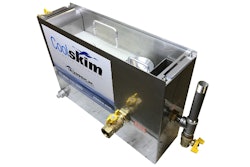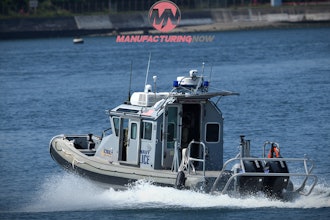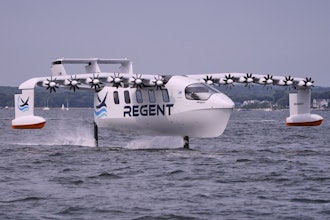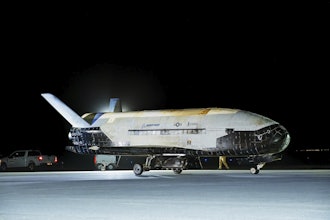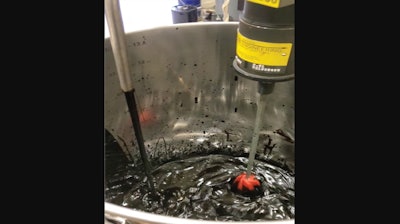
Southwest Research Institute (SwRI) scientists and engineers used internal research funding to develop “EZ Flow,” an innovative process for treating heavy crude oils, making pipeline transportation of the commodity more cost-effective and less energy intensive than current techniques.
“Our team developed the new method for processing heavy crude oil using a proprietary chemical treatment and mechanical technique,” said James Wood, a principal scientist in SwRI’s Chemistry and Chemical Engineering Division. “The new process reduces the viscosity of heavy crude oil by more than 60%, allowing it to flow more easily through existing pipeline networks.”
The novelty of the new process allows for transport of the treated heavy crude oil over great distances without heating the pipeline and without adding large amounts of chemical or diluent.
Conventional techniques to transport heavy crude oil are costly because they often use large volumes of chemicals or diluents and frequently require multiple treatment techniques to be applied simultaneously.
Transporting heavy crude oil and bitumen via pipeline is challenging at best and impossible at worst due to its high density and viscosity and very low mobility at reservoir temperatures.
“The most important factor influencing its high viscosity are the intermolecular forces between the branched molecules and the tendency of the asphaltenes and paraffins to aggregate producing cumuli of heavy hydrocarbons,” said Sergio Trevino, chemical engineer and SwRI consultant. “Those agglomerations have enough attraction between them to generate structural compression of the oil, and thus, reduce its volume. That, in turn, increases the viscosity of the heavy crude oil.”
The U.S. has more than 190,000 miles of liquid petroleum pipeline networks. Pipeline transportation is an environmentally friendly, economic way to move crude oils over long distances.
SwRI’s proof-of-concept EZ Flow technology offers a cost-effective means for conveying heavy and extra-heavy crude oils over long distances. Of the more than 80 million barrels per day of crude oil produced globally, about 11 million barrels are classified as heavy crude oils.
“According to industry experts, over the next 80 years, heavy crude oil production will increase exponentially as lighter crude oil reserves dwindle and those available become more expensive and difficult to recover,” Wood said.
The low concentrations of proprietary additives needed for EZ Flow make it environmentally friendlier and less expensive than other currently available commercial technologies.
SwRI is also investigating whether, with further research and optimization, EZ Flow could be used to upgrade, or chemically treat, heavy crude oil. “The next step is to scale-up the EZ Flow technology to start the commercialization process,” Wood said.
SwRI’s patent-pending EZ Flow proof-of-concept technology is available for commercial development.
For more information, visit swi.org.






